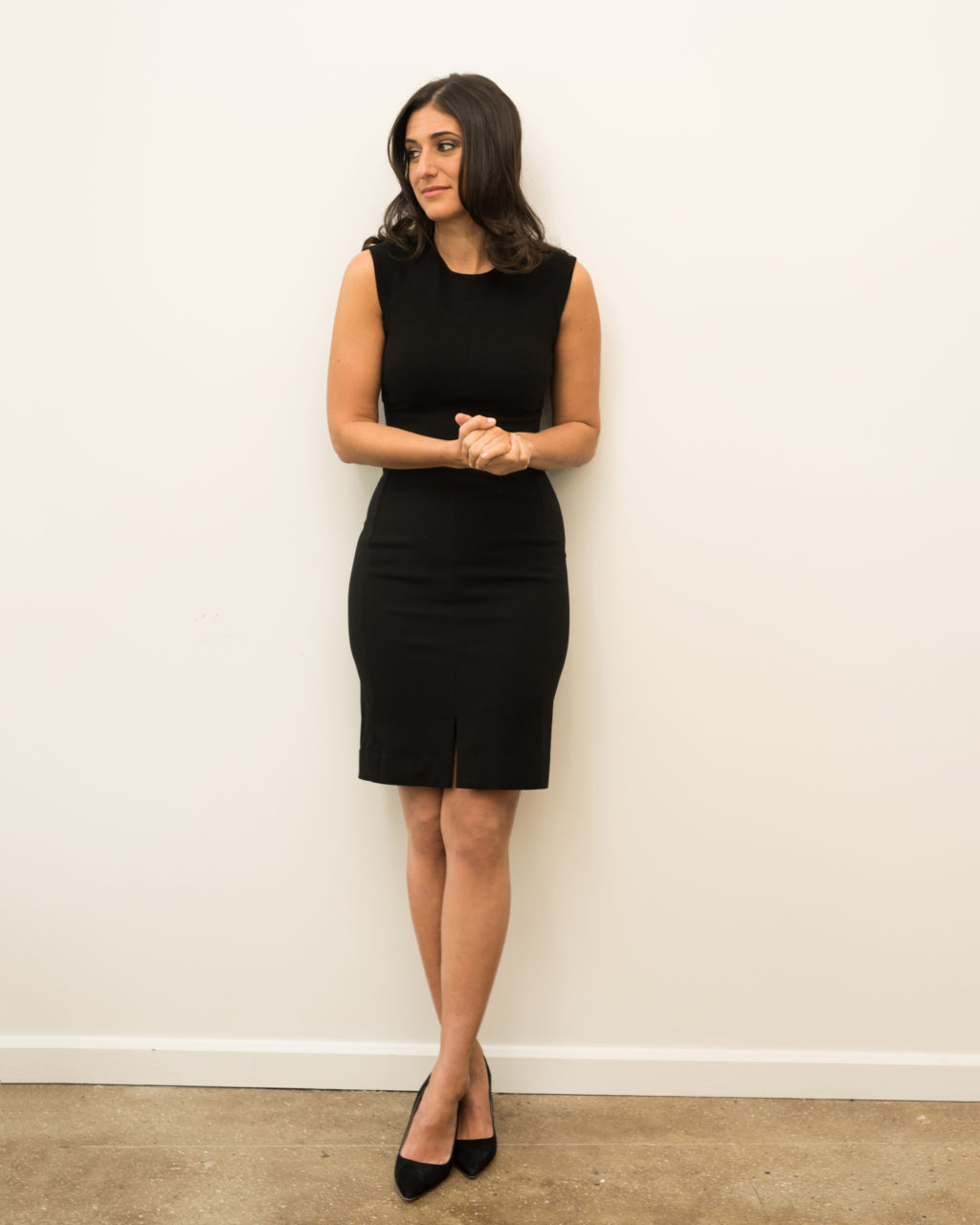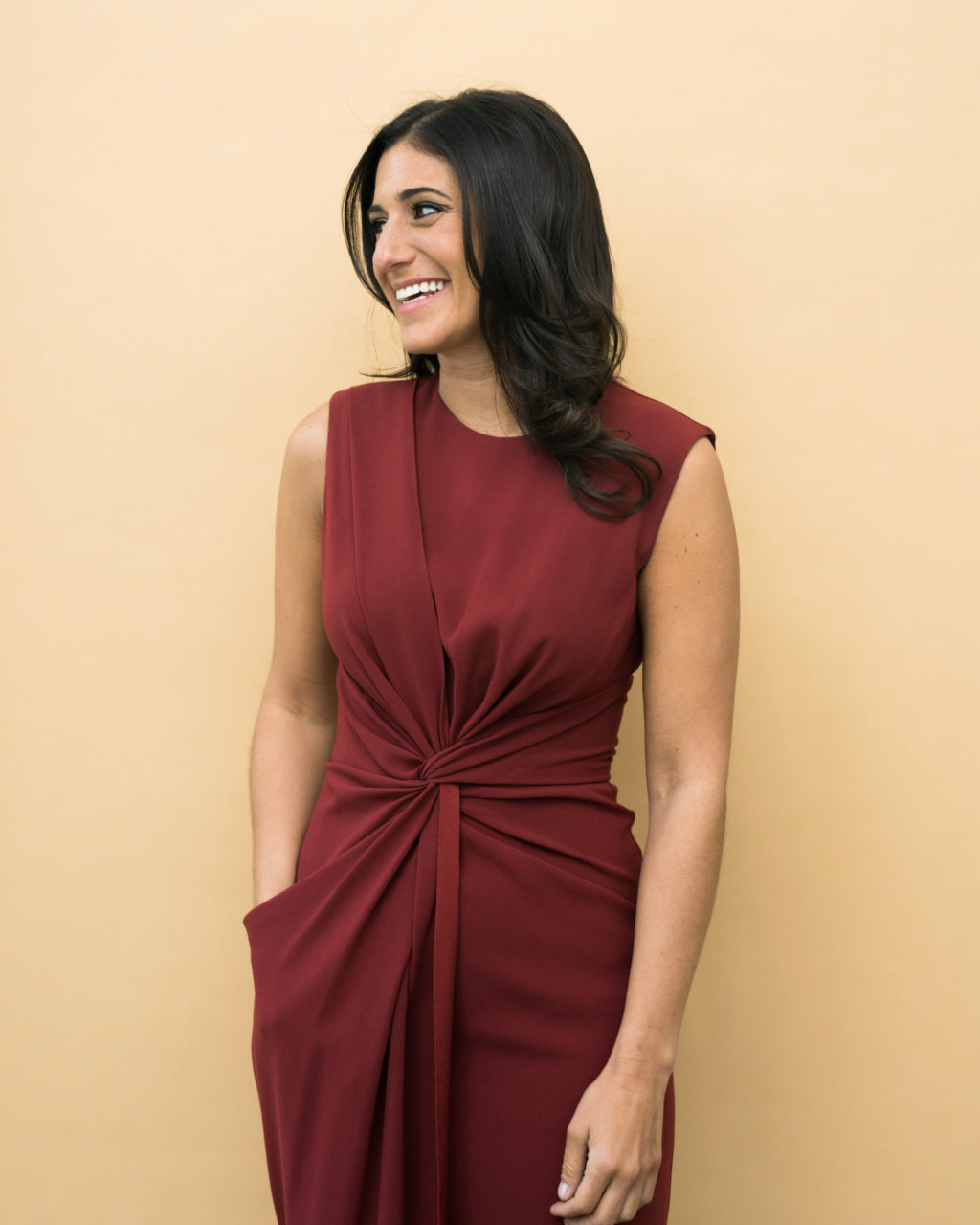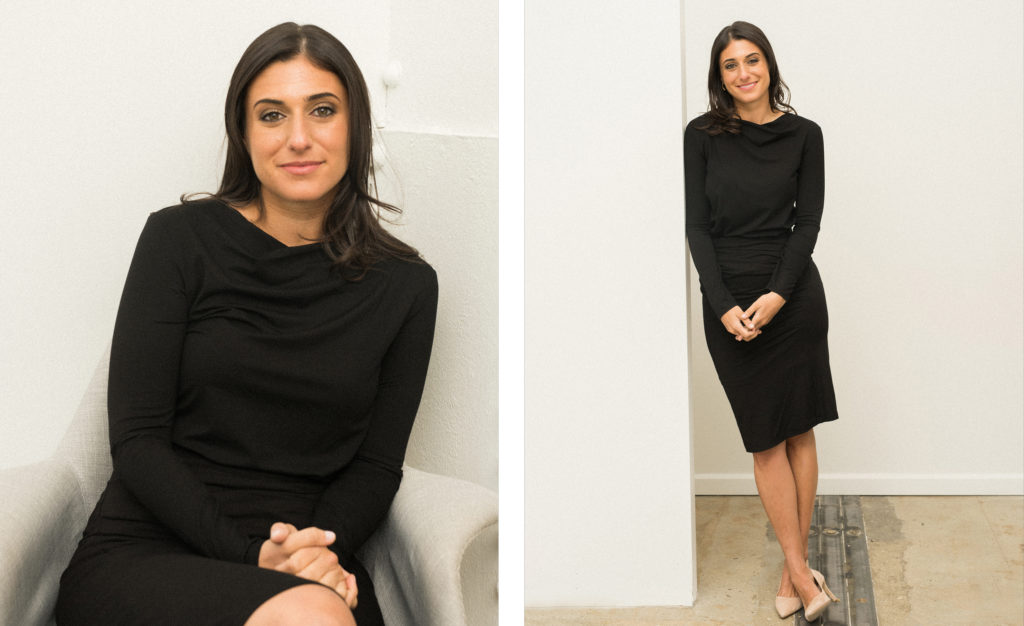CNN’S Laurie Segall on Misfits, Underdogs, and Getting in the Door
February 08, 2018 | Filed in: Woman of the Week
Laurie Segall is the senior tech correspondent at CNN, where she also hosts the docuseries “Mostly Human,” a show about technology’s impact on society and vice versa. She recently sat down with us in New York to talk weirdos, working up the confidence to pitch her own show, and her over-packing problem.
YOUR FIRST ASSIGNMENT as a reporter-in-the-making is to get in the door. That’s what journalists do—walk up to locked doors and poke around until we find a way in. When I was in college, I found the contact information for the woman in charge of internships at CNN, and I kept calling her. I was persistent but hopefully not annoying, which is a very fine line. I was rejected for one internship, but I kept trying and ended up getting another one. That process was incredible training for reporting. I call people all the time who initially don’t want to talk to me—you have to fight for your stories.
I’VE BEEN COVERING TECH for around eight years. When I started, I was doing business reporting, and I started seeing a lot of creative, smart people moving away from Wall Street and into the tech world. I would interview the founders of companies like Instagram and Uber who, at the time, didn’t have big names, and I became obsessed with these entrepreneurs who were coloring outside the lines. I had the idea to create a show, “Mostly Human,” that would explore the larger implications of technology. My argument was, “Tech is love, it’s death, it’s politics, it’s money. Tech is the under-layer to society.” I pitched it to CNN’s president, Jeff Zucker, and he liked the idea, so we had a lot of freedom to run with it. All these years later, my little beat on the side ended up becoming huge.
ONE OF MY STRENGTHS is being able to look ahead to see what’s coming next. What are we not talking about today that we should be talking about? In “Mostly Human,” we take big concepts, like depression, family, and war, and look at how technology impacts all of them. These stories aren’t about tech, they’re about people.

Laurie wears the Katie dress and the Vanessa pump in black.
MY CONFIDENCE DOESN’T NECESSARILY come naturally. When I had the idea for “Mostly Human,” it took someone I trusted to say to me, “Well, why don’t you just pitch it?” I try to remind myself that when you ask for things, you’re much more likely to get them. At the same time, this narrative we have about women who are successful—“We went in knowing exactly what we wanted, and we asked for it, and it happened”—is a little dangerous, because there’s so much more to it. There’s a lot of insecurity and wondering, “Can we really ask for this?”
I GREW UP IN THE SOUTH, the only Jewish girl in a conservative Christian school, and I never quite fit in. Therefore, my superpower was that I fit in everywhere, and was always very empathetic to others who weren’t like me. Anyone who was dismissed by the larger group was interesting to me, and that’s still true. I’ve talked to many powerful people throughout my career, and most of them started out as regular people fighting against massive industries and not taking no for an answer.

Laurie wears the Taylor dress in pomegranate.
IT WOULD BE DISHONEST TO SAY that my gender has never impacted me. Early on in my career, there was an investor who sent me inappropriate text messages, and now sometimes I think, Why didn’t I just publish them? At the time, I thought, “Well, if I go public, maybe he’ll spread rumors about me, or other men will be worried about talking to me.” I have less tolerance for discrimination as I get older. Now, if you’re a misbehaving investor, I want to be your worst nightmare. I have more motivation than ever to call that behavior out and find a productive way to talk about it.
MY RELATIONSHIP WITH TECHNOLOGY IS very complicated. I struggle with screen time. If I go without my phone for ten minutes, I feel like I’m going to have a heart attack, and that’s pathetic. One of my strengths as a journalist is that I’m able to talk with people and be present—but am I as present as I can be if I’m staring at my phone all the time? Am I getting as much sleep as I need to when my phone is right there next to me? But I also believe we shouldn’t be ashamed of our tech habits; there are people in Silicon Valley who spend years coding algorithms to get you to keep checking your phone. Those notifications are specifically programmed to make you feel like you’re missing out.

Laurie wears the Winfrey top and the Soho skirt in black with the Vanessa pump in beige.
I TRAVEL A LOT, and I have a bit of an over-packing problem. I don’t edit. I’m trying to get better, but I’ll put it this way: I always arrive prepared for anything. You never know—sometimes you end up being on the road for longer than anticipated. I always bring sneakers wherever I go, so that I can get out and walk around.
WHEN I FIRST STARTED GOING ON TV, our executive producer pulled me aside one day and said, “You have to stop wearing the same blazer over and over. I am banning the blazer.” I’m 32 now, and my biggest style priority is to wear clothing that makes me feel great. I like heels and I like bright colors, and I don’t want to dress down just because I’m covering technology.
THERE ARE SO MANY CREATIVE WAYS TO EXCEL in this industry. Personally, it has helped me to be a little bit self-deprecating, and to be self-aware. I say to aspiring journalists, “If you aren’t sure you want this, don’t do it. But if you do want it, there’s nothing cooler or more exciting.” It’s an intense job and it can be very chaotic, but it can also be full of humanity and make you feel like you have a real purpose.
Looking for an outfit that complements your ambition? Our new business-formal collection, Power Play, has you covered—shop it here.
Photographs by Katie McCurdy.





